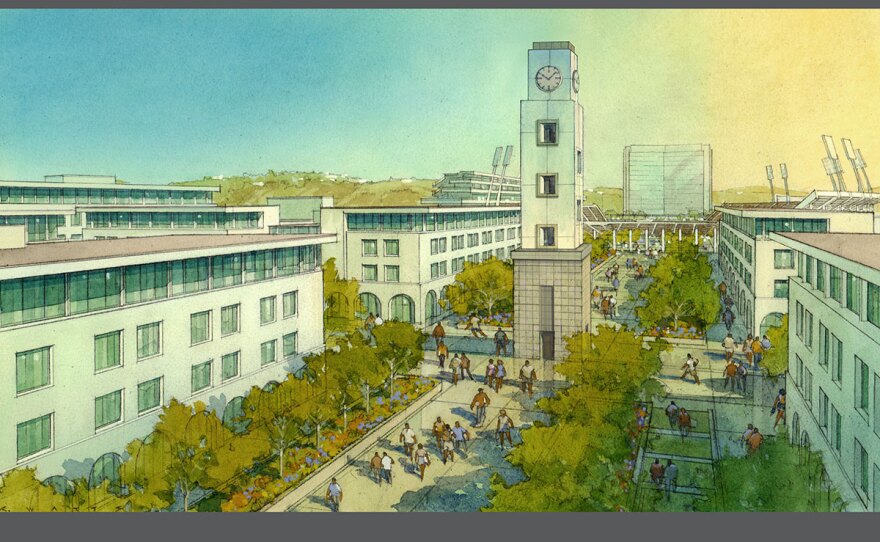More than 100,000 signatures from supporters of a proposed ballot initiative that would pave the way for San Diego State University to acquire the SDCCU Stadium property for campus expansion were certified by the city clerk, paving the way for the measure to appear on an upcoming ballot, organizers announced Thursday.
Now, the City Council will discuss the initiative at an upcoming meeting. The Municipal Code stipulates that the council can consider adopting the measure or send it to voters.
RELATED: San Diego State Might Tap Taxpayer Funds To Expand Into Mission Valley
"We are incredibly proud that the city clerk has cleared the way for SDSU West to be placed before voters this year," said Fred Pierce of Friends of SDSU, which organized the signature-collecting. "This important milestone moves us one step closer to making SDSU West a reality for San Diego State University and our city as a whole."
The group submitted 106,134 voter signatures for verification by the clerk; 71,646 verified signatures were needed.
A competing initiative, which would result in a soccer-centric commercial development, recently qualified and will go onto a 2018 ballot.
If both SDSU West and SoccerCity are approved by voters, the one that receives the most votes would be adopted.
The university has built to capacity in its current footprint, which means the proposal would allow SDSU to grow its academic, research and housing facilities to meet increased student demand that cannot be met at its current campus.
School officials in the fall outlined their vision for the project, including 1.6 million square feet of classroom and research buildings, a river park and open space, 4,500 housing units, retail shops, a pair of hotels and a multi-use, 35,000-seat stadium for college football and other sports.
RELATED: SoccerCity Backers Blast SDSU West Plan For Mission Valley Development
"This initiative unlocks the university's potential for continued growth," Councilwoman Barbara Bry said. "Investments in education pay high dividends for our community. Each year, SDSU generates $5.67 billion of economic impact. It is critical we continue to grow this powerful economic engine."
SDSU Interim President Sally Roush and JMI Realty CEO John Kratzer have said the project would be mostly funded by public-private partnerships, and wouldn't rely on taxpayer financing. The main exception would be the stadium, which would be funded by bonds to be paid back by future revenues.
The land is three trolley stops from the built-out main campus.
Nick Stone, project manager for SoccerCity, said he's looking forward to public debate over the two proposals.
"After all is said and done, we believe voters will choose SoccerCity, which offers something for every San Diegan, including plenty of room for SDSU to grow, a sports and entertainment district, and a massive river park, which will be built and maintained without a dime of taxpayer money, unlike the developer-written SDSU West proposal," he said.
KPBS is a service of San Diego State University.





